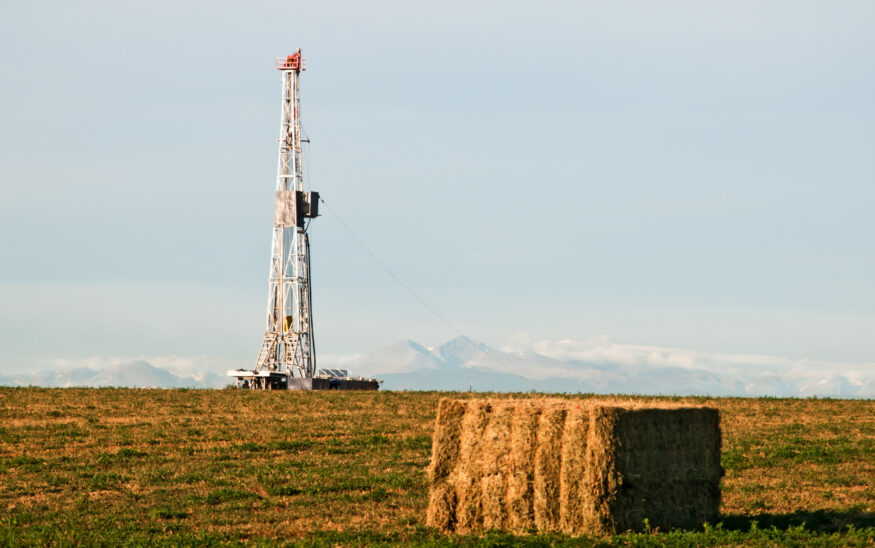Capitalizing on Colorado’s Homegrown Energy
Unleashing our potential could shape our state's future and a path for the nation's sustainability and independence.
Jon Haubert //December 20, 2023//


Capitalizing on Colorado’s Homegrown Energy
Unleashing our potential could shape our state's future and a path for the nation's sustainability and independence.
Jon Haubert //December 20, 2023//
In a global economy where products are not only delivered the next day, but sometimes the next hour, it can be easy to lose track of where things come from. A former industry trade executive used to quip, “Kids today think milk comes from the grocery story, gasoline from the Conoco station, and 2x4s from Home Depot.”
He may not have been far off in our modern-day comprehension of where things come from. Indeed, one consequence of America’s economic success these past hundred years may be our loss of a direct connection to the land and basic understanding of our natural resources.
Or has it?
There’s something deep within the power behind the Colorado brand. Countless companies have found a way to subtly profit from Colorado’s homegrown reputation.
For more than a century, Golden-based Coors has pedaled beer made from the pristine waters of the Rocky Mountains; Pueblo is burning up the market with their chilies; Olathe sweet corn rivals that from Iowa; Rocky Mountain Chocolate Factory has built a global dynasty; Palisade peaches and melons from Rocky Ford are unmatched; and of course, Colorado’s brand of cannabis-derived products, including edibles and hemp-made products, are known from coast to coast.
Perhaps the same could be true for Colorado’s homegrown energy.
READ: Who Will Lead Colorado’s Energy Future?
According to the U.S. Energy Information Administration, last year, the Centennial State’s fertile energy ground made it the fifth-largest crude oil-producing state, with 82% of production coming from Weld County. Colorado was also the eighth-largest natural gas-producing state in 2022 and has the eighth-largest natural gas reserves.
Some have criticized oil and natural gas as the primary contributor to a climate change, claiming the elimination of fossil fuels is paramount to protecting the environment and saving Mother Earth. Timing is running out, they say. The end of the world is near. However, rarely do they offer realistic, practical energy alternatives that will keep us comfortable at home and work and at a price we can afford without completely upending our economy and forcing us to relocate back to caves.
Others argue the opposite — oil and natural gas is the solution, not the culprit.
READ: Biden is Right About One Thing — Oil and Natural Gas Aren’t Going Anywhere
They point to the fact that energy poverty and a lack of access to affordable energy is literally leaving billions freezing in the dark. These third-world countries and emerging nations are only looking to replicate America’s success: an economic engine built entirely on the foundation of cheap, abundant, reliable fossil fuels. Still, there’s no doubt the talking points that extreme environmental groups — as unrealistic as they are — have made an impact.
What began as a campaign to end “dirty coal” has pivoted to a ban on oil and natural gas and fossil fuels altogether. Perhaps public opinion polling showed them that eliminating fossil fuels was impossible, maybe even ill-advised, and their slogan of “keep it in the ground” seems to have morphed into “keep it from moving around.” In other words, they have conceded that it’s OK to produce hydrocarbons, but you can’t transport or sell them, which of course is just a more clever, de facto ban.
This year, the Institute for Energy Research released its inaugural Environmental Quality Index comparing the environmental quality of all major oil-producing countries. The results were overwhelming if not shocking. The United States, the world’s largest producer of both oil and natural gas, is only outranked on environmental quality by three of the top 20 global oil producers and three of the top natural gas producers, but none of those countries produce even one quarter of the volumes of oil or natural gas that the U.S. does. That means the U.S. produces the cleanest energy in the world at the highest volume bar none.
Energy must be produced somewhere. Our modern way of life is irrevocably I dependent upon abundant, affordable, reliable energy. America, and Colorado specifically, has some of the toughest environmental rules and oil and natural gas regulations in the world. We’ve seen what happens when we outsource manufacturing to other countries. Our principles around child labor protections are violated, the environment is outright ignored if not abused, and jobs traditionally performed here seem to never return.
READ: Andy Filson and the Future of Manufacturing in Colorado (Q&A)
A case could even be made that it’s now more important than ever to ensure the United States is able to meet the energy needs of its citizens while limiting its reliance on foreign entities. According to a report from the World Bank, the recent war between Israel and Hamas may cause oil prices to balloon by 35%. Couple that with increased tensions with Russia given their ongoing invasion of Ukraine, recent geopolitical conflicts expose the incredible gaps in depending on oil and gas imports for our energy needs. As uncertainty arises at the international level, it’s all the more important for the United States to be self-sufficient, and Colorado can play a huge role in achieving energy independence for the nation.
Perhaps it’s time to rally around these facts and the opportunities to capitalize on Colorado’s brand when it comes to our homegrown energy.
 Jon Haubert is the publisher of ColoradoBiz magazine. Email him at [email protected].
Jon Haubert is the publisher of ColoradoBiz magazine. Email him at [email protected].

























